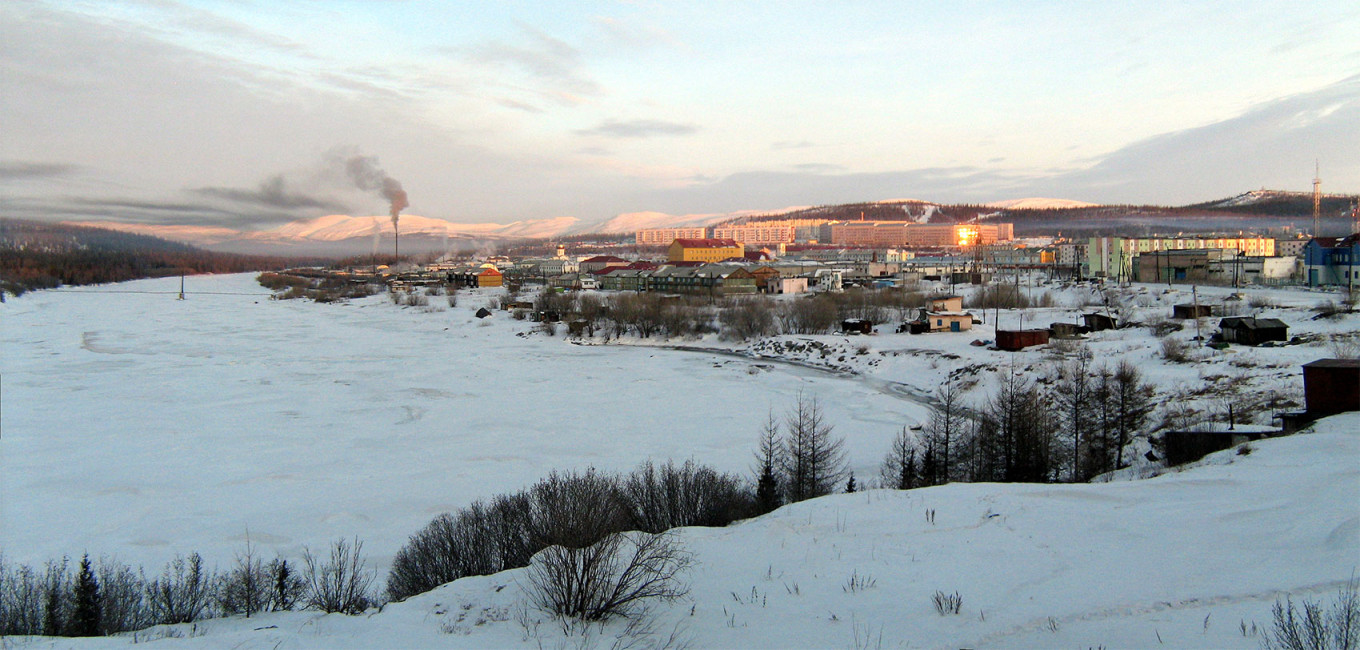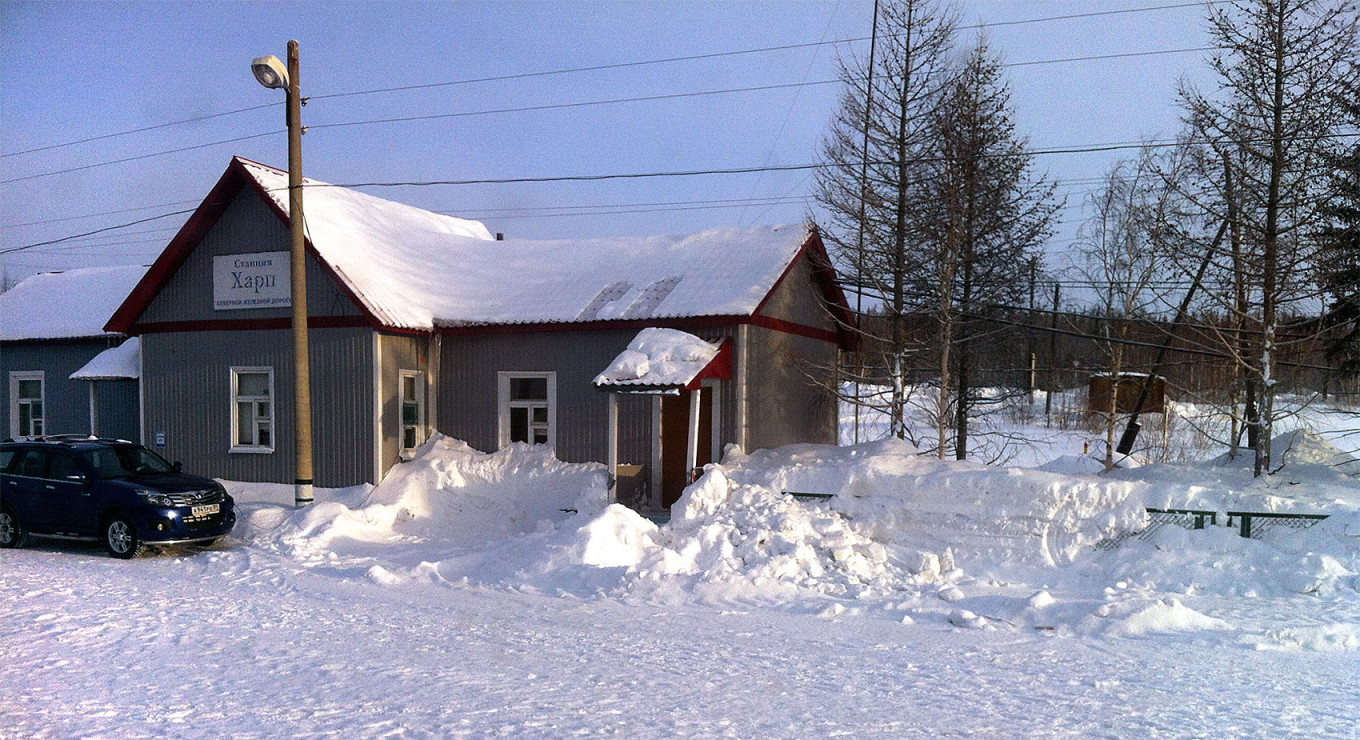Jailed Kremlin critic Alexei Navalny has been located at a prison colony in Russia’s Arctic, his team said Monday, ending a frantic three-week search for the opposition figure’s whereabouts.
Navalny’s spokeswoman said he had been found at the IK-3 prison colony in Kharp, a settlement in the Yamal-Nenets autonomous district some 2,000 kilometers northeast of Moscow.
Navalny ally Ivan Zhdanov called IK-3, which was founded in 1961 on the site of a former Soviet gulag forced labor camp, “one of the most northern and remote” prison colonies in Russia.
Navalny’s team and activists linked his transfer to the upcoming presidential elections in March in which President Vladimir Putin is widely expected to win re-election, describing it as an attempt to “isolate” the opposition politician.
‘Impossible to escape’
“The conditions [in special-regime colonies] are quite terrible, it is clear that this is detention in maximum isolation,” human rights defender Igor Kalyapin told The Moscow Times. “I think that Navalny was sent so far precisely in order to ensure this maximum possible physical isolation, so even taking a trip there would be a problem.”
IK-3 is known for holding Platon Lebedev, a one-time business partner of exiled former oligarch Mikhail Khodorkovsky, in the 2000s. Lebedev was convicted of tax evasion, money laundering and fraud in what he and his supporters maintained was a politically motivated case.
“IK-3 has always functioned as a colony for especially dangerous repeat offenders,” Russian journalist Leonid Nikitinsky, who visited Kharp in 2006, said in an article for the independent newspaper Novaya Gazeta, adding that the area sees harsh weather conditions.

Ivan Vostrikov, Navalny’s former Tyumen regional coordinator who also visited Kharp, said “it is almost impossible to escape from there — there are hundreds of kilometers of tundra on one side, and the mountains of the Polar Urals on the other.”
Despite the colony’s physical isolation, IK-3 is connected to the Zonatelecom electronic letter service, independent Russian journalist Farida Rustamova noted.
Accounts from current and former IK-3 prisoners describe a particularly harsh environment with barebones living conditions along with physical and psychological brutality.
Some prisoners complained about a lack of clothing and other essentials in the colony, the independent media outlet Vyorstka said, citing court filings.
Convict Maxim Bakhvalov, who served a sentence in IK-3 from 2017-2020, claimed that upon his arrival at the colony, he was only provided with one pair of winter boots and a worn-out suit.
Another prisoner, Sergei Chesnokov, claimed he was frequently ill after his clothes became unusable and the prison administration failed to provide replacements, Vyorstka said.
Inmate Sergei Sheikhin filed a lawsuit against the colony in 2022, complaining that his unit was confined in a cell lacking natural light and hot water.
The Yamal-Nenets autonomous district’s Prosecutor’s Office at least twice since last year reported non-compliance with labor protection laws, fire safety regulations and sanitary standards at IK-3.

Last year, the Federal Antimonopoly Service also included IK-3 — which can house up to 1,050 prisoners, according to the Federal Penitentiary Service — on its register of unreliable contractors.
Other prisoners reported experiencing “psychological stress” due to their conditions, Vyorstka said.
Some even accused prison guards of torture.
“When prisoners enter the colony, they are taken to the bathhouse. When a person undresses and goes to wash, the water is turned off and people in masks come in and start beating him. With me, this lasted for about half an hour. There were about 15 people — both prisoners and employees,” said convict Mikho Khulilidze, who served his prison term in IK-3.
“They put me on the floor and beat me with batons and fists on my buttocks, my head, my face, my ribs. They did not provide any medical assistance,” Khulilidze said.
… we have a small favor to ask.
As you may have heard, The Moscow Times, an independent news source for over 30 years, has been unjustly branded as a “foreign agent” by the Russian government. This blatant attempt to silence our voice is a direct assault on the integrity of journalism and the values we hold dear.
We, the journalists of The Moscow Times, refuse to be silenced. Our commitment to providing accurate and unbiased reporting on Russia remains unshaken. But we need your help to continue our critical mission.
It’s quick to set up, and you can be confident that you’re making a significant impact every month by supporting open, independent journalism. Thank you.